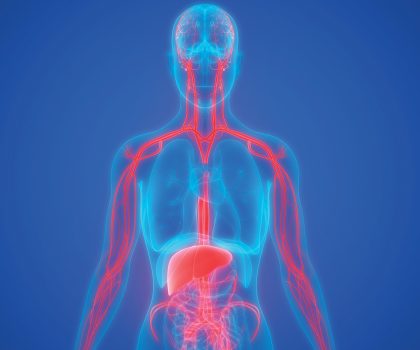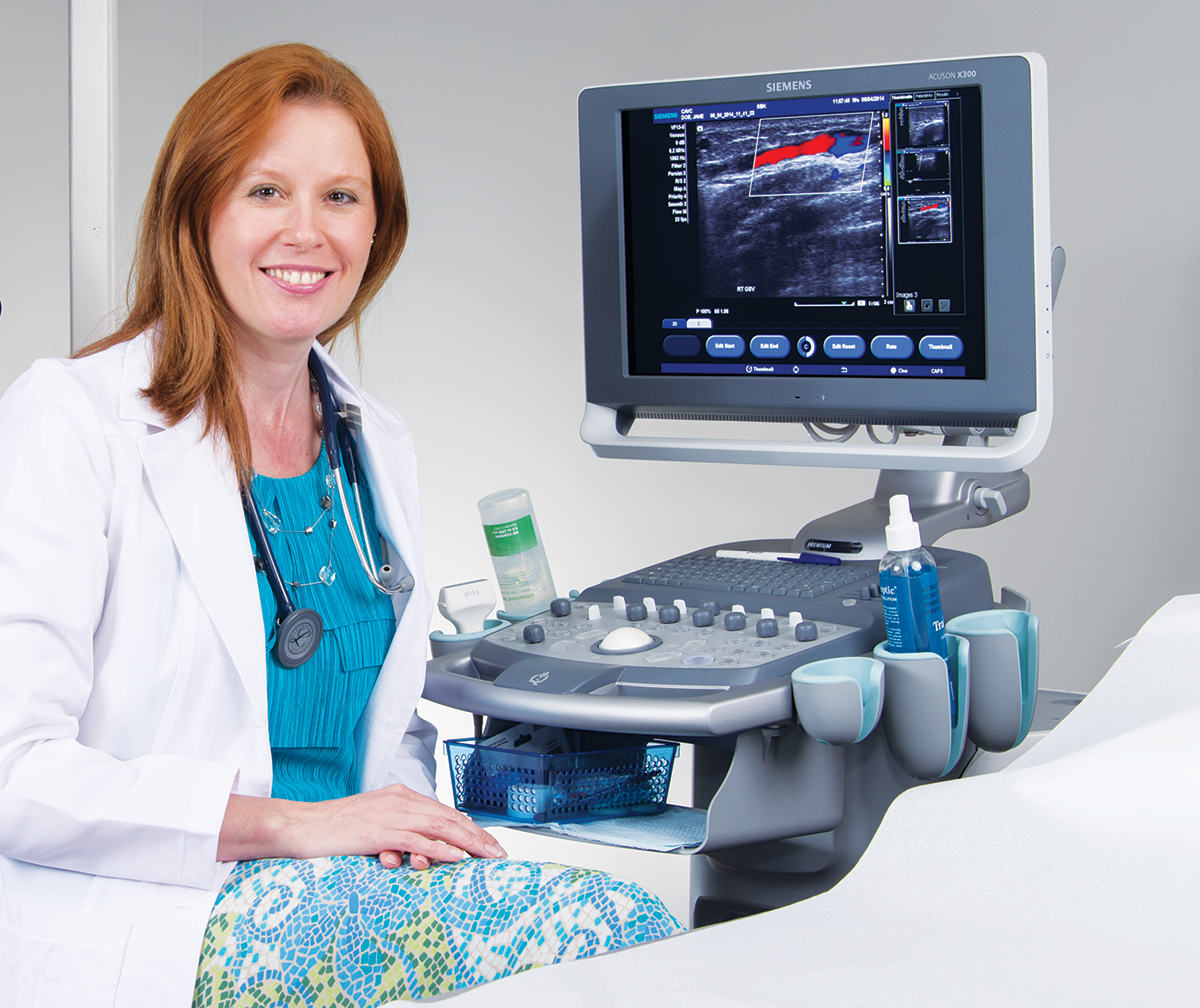Inflamed veins: The surprising connection between chronic inflammation and venous disease

By Mimi Vanderhaven
Right now there is a lot of emphasis on the heart or, rather, the entire cardiovascular system. February is American Heart Month, a reminder that we should all focus on keeping our heart healthy, while March is National Deep-Vein Thrombosis (DVT) Awareness Month, a public health initiative aimed at raising awareness of this commonly occurring medical condition. DVT is a blood clot in the veins that can break loose and cause a potentially fatal problem in the lung, called a pulmonary embolism.
“These two months are our months,” says Dr. Sonja Stiller, founder of Mentor’s Center for Advanced Vein Care. “It’s a time to help people focus on the importance of the entire circulatory system.”
In addition to the heart, the circulatory system is made up of arteries—which deliver oxygen- and nutrient-rich blood to the cells—and veins—which remove waste from the cells after they’ve used those nutrients, essentially “taking out the trash.”

“Imagine cooking dinner every night and never cleaning up the kitchen or taking out the trash,” Dr. Stiller says. “Pretty soon you have an unhealthy mess. The same is true with your body. If your veins aren’t healthy, waste can build up in your blood causing a lot of problems, especially in your lower legs. That can result in inflammation, achiness, tingling, swelling, fatigue and a higher possibility of dangerous blood clots.”
While the heart pumps the blood in your arteries, your veins have what doctors call your “second heart.”
It’s your calf muscle.
“People are shocked to discover how essential the calf muscle is to moving blood out of our feet and lower legs,” Dr. Stiller says. “That’s why it’s so important to have strong calf muscles, and that comes from walking, from getting your 10,000 steps in every day.”
And there’s another important health concern related to both the arterial and venous systems—inflammation.
Chronic Inflammation
“Chronic inflammation is increasingly making headlines in medical news,” says Dr. Stiller.
“That’s because it’s being identified as the underlying cause for so many illnesses, including cancer, IBS [Irritable Bowel Syndrome], MS, Alzheimer’s, fibromyalgia, and more. Our heart, arteries and veins are affected by inflammation, too. Heart disease has inflammation at the base of the process that can lead to a heart attack. So do vein disease and blood clots. If a vein isn’t functioning properly—as in the case of spider veins and varicose veins—the result is an inflammatory response. Sometimes you can see varicose veins, but sometimes they are deep and not visible.”
When a vein is broken, it causes stagnant flow and high blood pressure, or hypertension. “Chronic venous hypertension causes inflammation that can affect the vessel walls, soft tissue, and skin around the veins,” Dr. Stiller says. “This can lead to skin rashes, color changes, and ulcers.”
A Double Whammy
According to Dr. Stiller, inflammation is not inherently a bad thing.
“Inflammation is our defense against things that are foreign, such as infections,” she says.
“When we catch a cold, the body tries to fix the situation by bringing in soldier cells to fight the virus. That’s a sign of a healthy immune system. But when it’s chronic—when the inflammation never settles down—it can snowball. That’s when it can lead to heart and vein disease. That’s when you start getting symptoms.”
In addition to venous disease, chronic inflammation can have many other causes—from arthritis to IBS—and having more than one source means a “double whammy,” when the immune system is constantly set on overdrive. That’s why it’s important to treat chronic inflammation wherever you can find it.
“When treating inflammation related to vein disease, we work to fix veins that are broken so they can more effectively ‘take out the trash,’” Dr. Stiller explains. “This reduces toxins related to metabolic waste, calms the inflammation, and allows the body to settle down.”
More Than Vein Treatments
Center For Advanced Vein Care employs several of today’s most advanced treatment including chemical and thermal ablations (including laser as radio frequency), as well as newer medical adhesive ablation (glue) that reduces or eliminates the compression stocking requirement.
But the cutting-edge center also focuses on healing from within, making recommendations that go beyond traditional varicose vein treatments, including the treatment of lymphedema, the use of pulse electromagnetic frequency devices, and recommending lifestyle adjustments.
“We focus on healing from the inside out,” Dr. Stiller explains.
“We work with patients to help them improve their sleep patterns, for example. Proper sleep improves brain function and is essential to reducing inflammation. We also recommend exercises that people will actually do. Being active helps reduce inflammation, and walking helps keep your calf muscles healthy and strong. We talk with our patients a lot about diet and nutrition, weight loss, and venoactive supplements. We just want people to feel better.”
Are You At Risk?
According to Dr. Stiller, one of the biggest risks of venous disease lies in family history. “There are lifestyle changes we can recommend to prevent venous disease, but there is little we can do about three of the biggest causes—gravity, aging, and genetic predisposition,” she says.
If one or more of your close family members suffered or is suffering from varicose veins, there is a higher likelihood that you will, too. If you have a family history of venous disease and/or if you are experiencing any of the following symptoms, it’s a good idea to get checked out now:
- chronic leg pain
- fatigue
- itching
- burning
- Restless Leg Syndrome
- leg cramps or swelling
Dr. Sonja Stiller is a diplomat of both the American Board of Emergency Medicine and the American Board of Venous and Lymphatic Medicine. She is the founder of the Center for Advanced Vein Care, a Tier 1 provider with Lake Health Hospital System, located at 7200 Mentor Avenue, in Mentor. For an appointment, call 440-710-1140. More information can be found at YourHealthyVeins.com.
